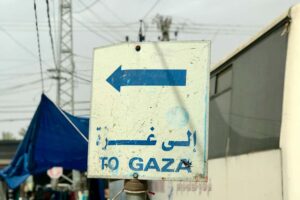
The Gaza war’s first phase was difficult for Hamas. The current phase has been catastrophic.
In the war’s opening stage, Hamas scored dramatic achievements. The October 7 assault inflicted a painful blow to Israel, both militarily and psychologically. Moreover, Hamas imposed substantial costs on the Israeli economy by drawing Israel into a prolonged campaign in Gaza and igniting low-intensity warfare on other fronts.
On top of this, Hamas triggered an unprecedented global wave of anti-Israel sentiment, turning segments of Western public opinion sharply against the Jewish State.
However, these initial gains began to yield diminishing returns as the conflict progressed. In parallel, Hamas paid a significant price as Israel launched an invasion that destroyed extensive parts of the Gaza terror base.
Still, Hamas had some reasons for optimism: The group’s top leadership managed to survive for months by utilizing Gaza’s vast tunnel system. Some military hubs remained operational, albeit weakened.
Initially, Israel also refrained from taking control of the Rafah Crossing and Philadelphi Corridor on the Egypt-Gaza border, a vital supply route for Hamas.
The price of miscalculation
Approximately six months into the war, Hamas could have maximized its gains and limited its losses by pursuing a comprehensive ceasefire and hostage deal. The group’s leaders could have shifted their militant rhetoric, insisting it was time to end civilian casualties. Even if insincere, such statements would resonate globally.
Hamas could have offered to release the hostages and agreed to other concessions, making it difficult for Israel to reject a deal that effectively ends the Gaza war. The option of safe passage to exile for the group’s terror chiefs was reportedly also on the table.
However, Hamas leaders, particularly Yahya Sinwar, chose to continue the conflict, believing further achievements were possible. This decision would prove costly.
Hamas paid a massive price for its continued defiance. Israel capitalized on the extended timeframe and new intel to eliminate top terror leaders, including Mohammad Deif and Marwan Issa, numbers 2 and 3 in the organization’s Gaza hierarchy. Later, Sinwar himself was killed by the IDF.
The army expanded its operations, destroying more terror assets and infrastructure. Israeli forces swiftly took control of the Rafah area and Gaza’s border with Egypt, severing Hamas from crucial military aid and reinforcements.
Desperate Hamas gamble
The Hamas strategy increasingly resembled that of a desperate gambler hoping to recoup mounting losses by ultimately winning the jackpot: Sparking a regional war that would save Hamas and brutalize Israel.
However, despite numerous opportunities for escalation, Israel, Hezbollah, and Iran carefully avoided a full-scale conflict, as Sinwar and his partners continued to gamble away Hamas’ and Gaza’s future.
But unlike in poker, Hamas cannot easily return to the table to try again. The organization faces a long and uncertain path to rebuilding its power to pre-October 7 levels, if it can do so at all. Indeed, it may never fully recover.
This may have been a one-time opportunity for Hamas to maximize unimaginable gains. Instead, Sinwar’s reckless gamble has largely destroyed his organization and home base.
Overall, while Sinwar’s initial strategy leading up to October 7 yielded significant rewards, Hamas’ subsequent war management increasingly turned into a disaster. In this high-stakes Mideast poker game, the failure to step away from the table at the right moment may have altered the future of Hamas and Gaza irreversibly.


